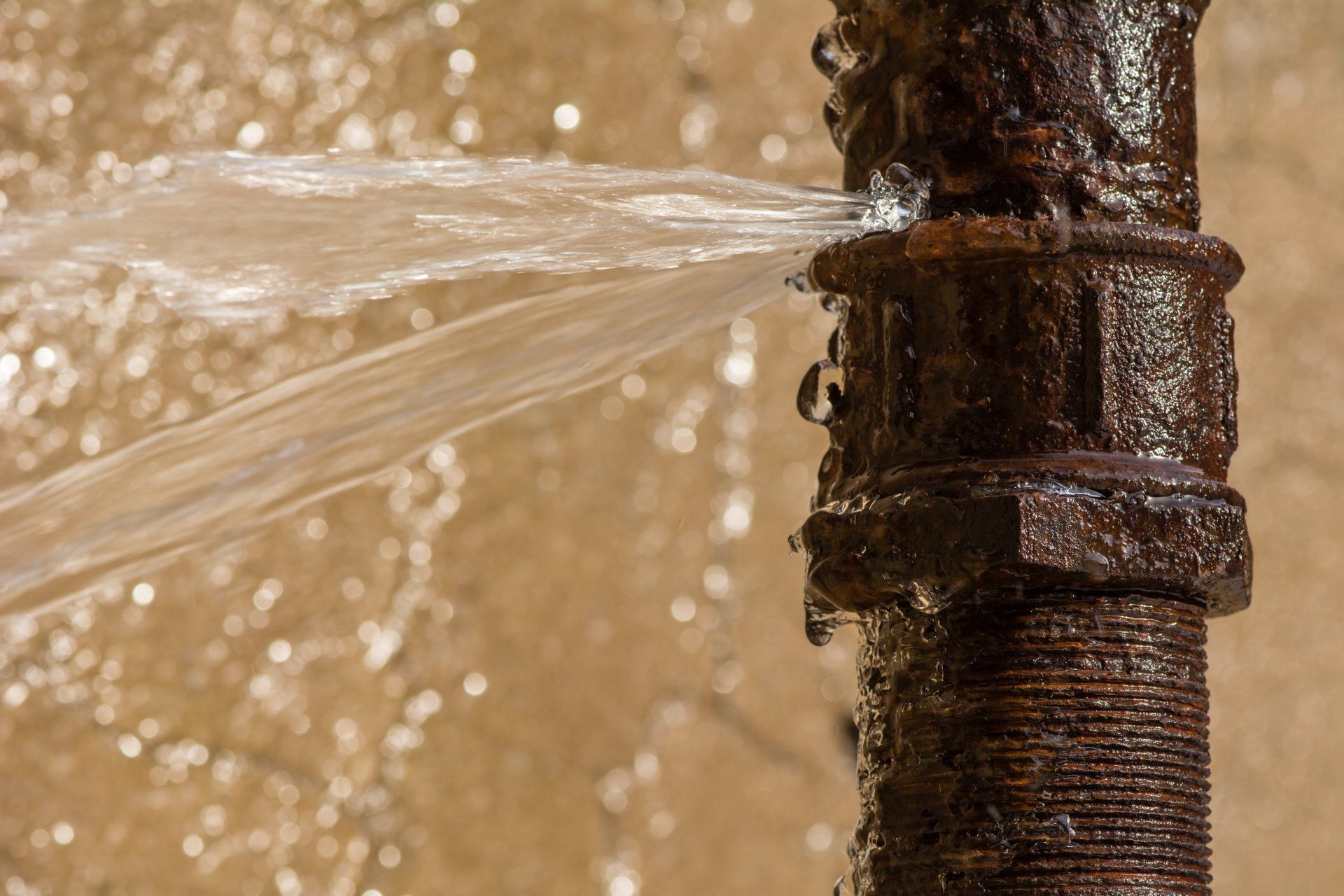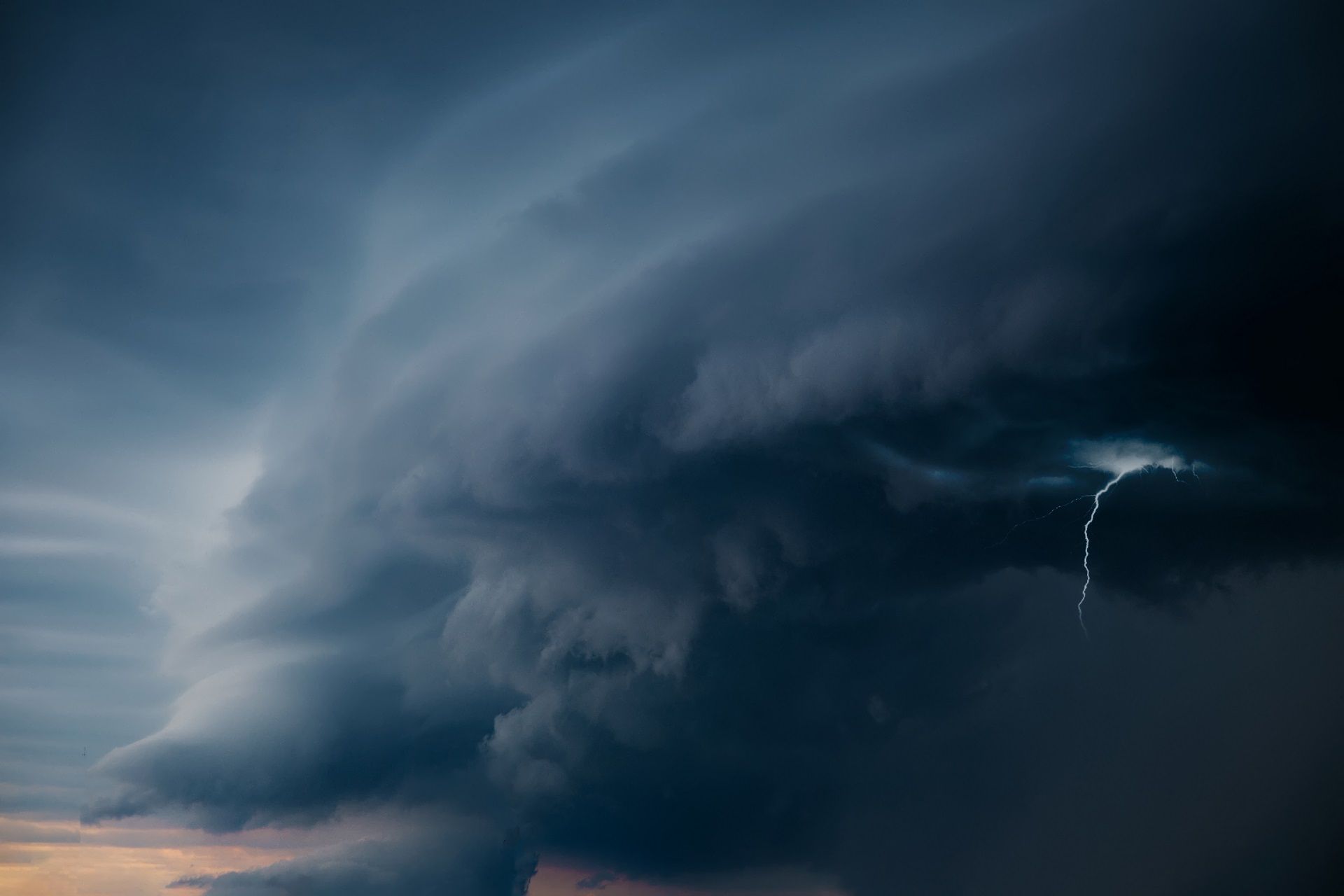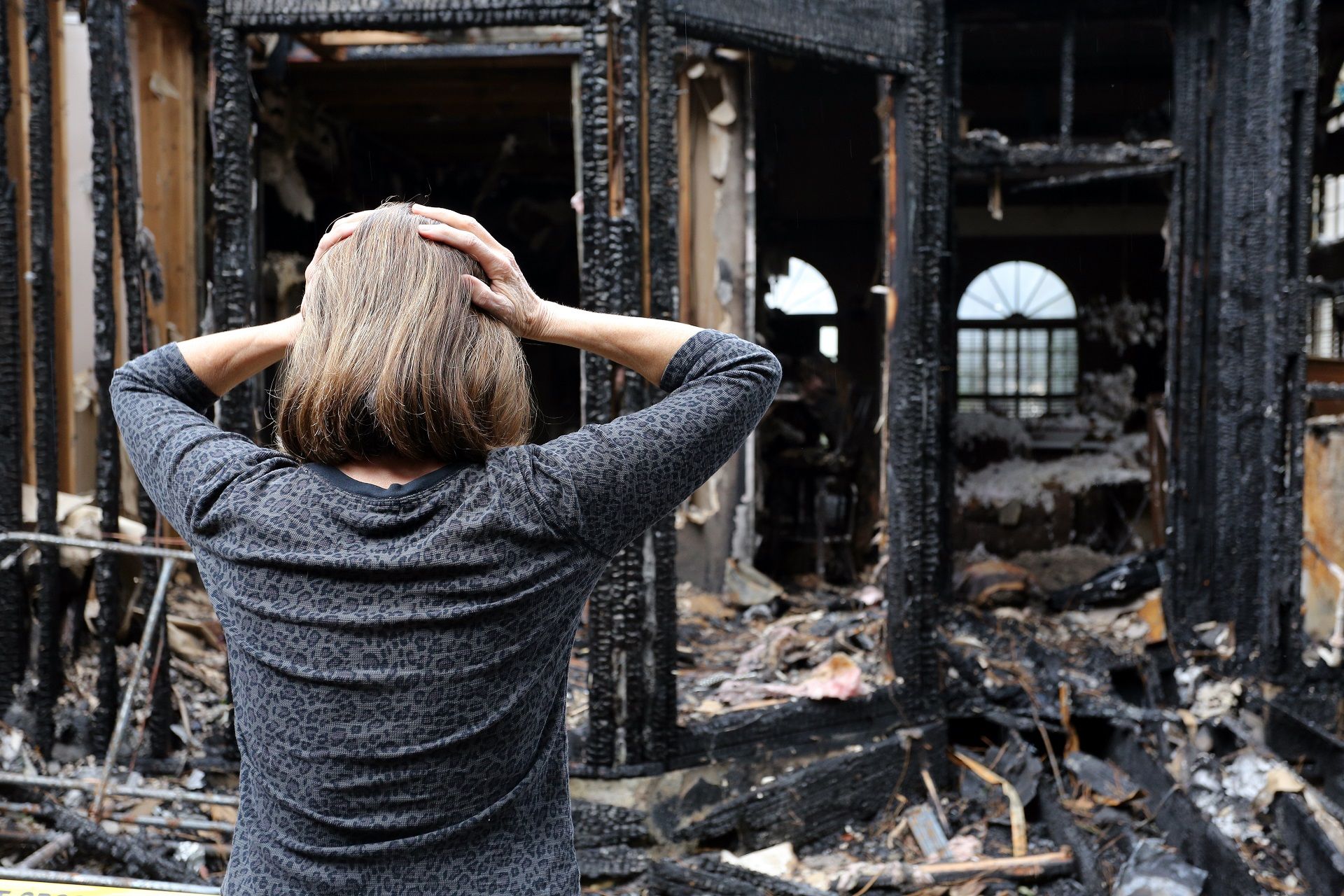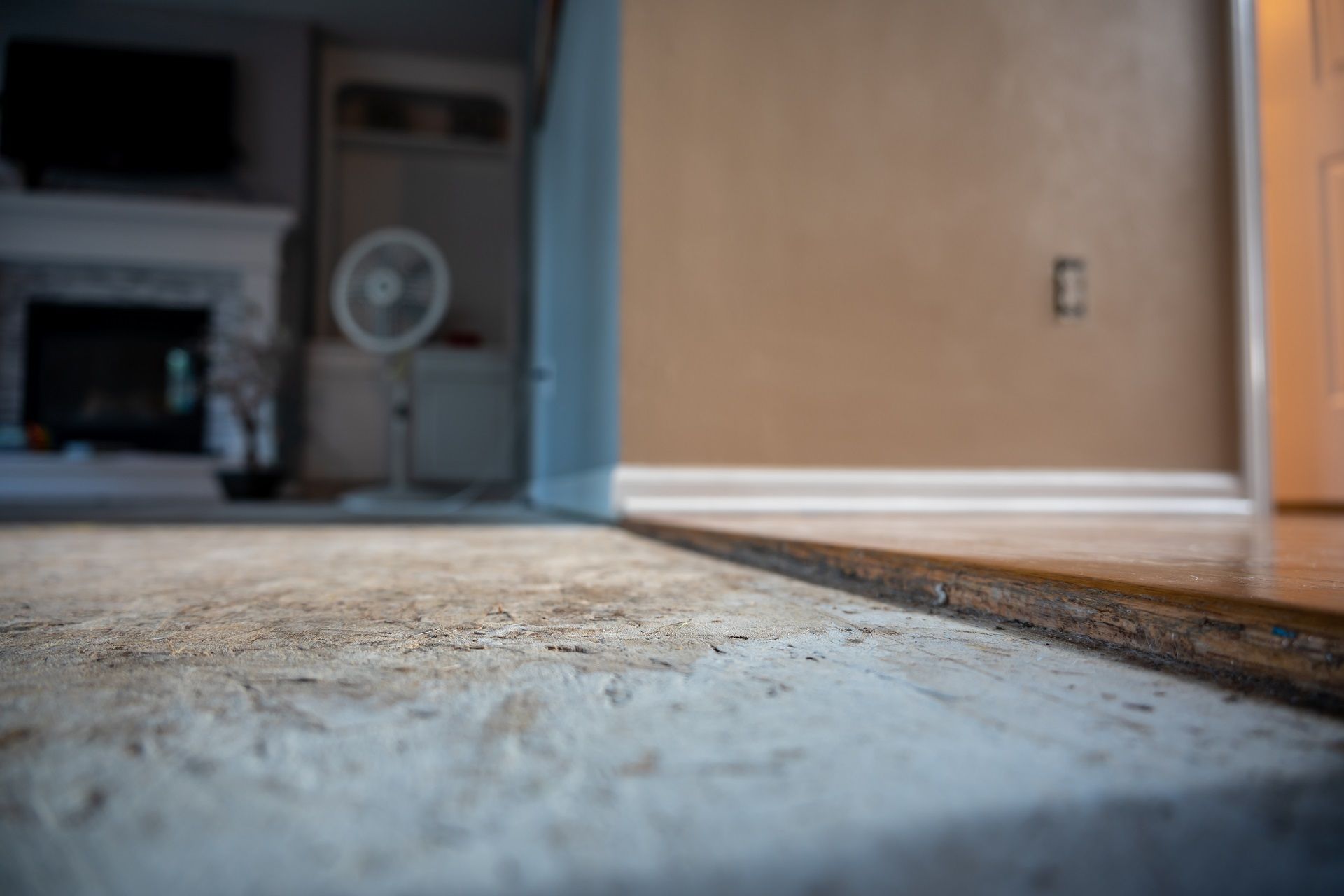Does Home Insurance Cover Water Pipe Leaks and Plumbing?

You swing your legs out of bed in the morning and your carpet is… squishy. The carpet shouldn’t be squishy, and now you have to deal with filing a claim with your insurance company about water damage.
What caused the leak? What will your insurance company pay for? Read on to find out what is and is not typically covered by your homeowner’s insurance policy.
Different Damage, Different Coverage
Your homeowner’s insurance policy should cover the damage caused by plumbing issues and this is generally divided into two different types of coverage: dwelling coverage and property coverage.
The dwelling coverage is fairly straightforward, it covers the damage that occurs to your home directly, the drywall, joists, flooring, etc. If the water damage is caused by a burst pipe that ruins your hardwood floor, the insurance company will pay for the cost of replacing your floor.
Property coverage is a little bit different. If you have a laundry room on the second floor of your home and your washing machine leaks, it will cause damage on the first floor of your home. If you have items of significant value, such as a wall-mounted television that is damaged by the water then the insurance will pay to replace your TV. They will typically not pay, however, to replace your washing machine because it is the source of the damage.
Your deductible still applies, so you will have to pay the amount of your deductible before your insurance coverage will pick up the rest of the cost. Be aware of any policy limits too because any damage that exceeds the amount of your coverage will have to be paid out of pocket.
Sudden and Accidental Damage
This is exactly what it sounds like: unforeseen damage that was caused by circumstances out of the control of the homeowner. For example, a pipe burst, an appliance leaked, a fitting inside the wall came loose and a flood resulted.
Homeowner’s insurance will almost always cover leaks and plumbing caused by this type of damage. Next, we’ll talk about the kind of damage that isn’t covered and that is what is called preventable damage: circumstances where the homeowner could have done something to prevent it and did not.
Long-Term Leaks and Maintenance
As a homeowner, you have a responsibility to keep your home in good repair, and this includes checking your plumbing regularly for leaks in areas such as the traps under your sinks and around your toilets.
If you have old pipes that need to be replaced and you don’t replace them, then your insurance company may rightfully deny your claim as a type of “gradual damage” caused over time.
If your pipes have already been leaking and causing damage for months, then your insurance may deny your claim as well. This carries over into claims about damage to your roof. You may be able to file a claim for weather damage to your roof to have it paid for, but if you don’t repair the roof then you cannot later file a claim for water damage caused after a rainstorm that leaks into your home.
If you have a cracked pipe causing damage that you don’t know about, you won’t necessarily be denied, but you have a certain amount of time to file a claim after you become aware that there is an issue with your home. You can also file a separate claim for damage caused by an improper repair from a catastrophic incident that causes gradual damage later and that will typically be covered.
What Isn’t Covered Under Most Policies
Backups from outside sewers or drains are usually not covered. You may be able to purchase additional coverage for this type of damage, but it is typically not standard for a homeowner’s insurance policy.
Flood damage is never covered by a standard homeowner’s insurance policy, not even in flood-prone areas, and even if the damage is caused by a natural disaster like a hurricane or other severe storm. If you live in a lowland where you are concerned about flooding, you may be able to purchase flood insurance through the National Flood Insurance Program by FEMA , and this is the only option for millions of Americans.
What Do I Do if My Claim is Denied?
1. Ask why your claim was denied
Have your insurance company give you a full explanation of why your claim is denied. It is your right as a policy holder to understand why your insurance company is not paying for the damage and which part of your policy is excluding the damage.
2. Who decided to deny it?
Who made the final decision that your claim was not covered? Was it a contractor or adjuster? They may have denied your claim because they perceived that the damage was caused by maintenance-related issues and another professional may feel differently.
3. Ask for a second opinion
Some insurance companies will give you the opportunity to appeal a claim, and you may be able to ask an agent or representative to review your claim. You won’t know if you don’t ask.
Make the Smart Choice with Continental Public Adjusters
When it comes to navigating property claims in the vibrant state of Florida, Continental Public Adjusters is your trusted partner. Our extensive experience is dedicated to helping you maximize the benefits from your insurance policy.
Whether you're dealing with a new property claim or grappling with the frustration of a denied, delayed, or underpaid claim, an experienced public adjuster is your essential resource.
Here are five compelling reasons to entrust your needs to Continental Public Adjusters:
- Your Dedicated Advocate: Our unwavering commitment is to secure the highest compensation possible for your loss.
- Comprehensive Investigation: We leave no detail unexplored in our investigation to understand the specifics of your loss. Our team of experts and consultants work diligently to determine the true value of your property loss.
- Precise Documentation: Using cutting-edge cost estimating software, we meticulously prepare comprehensive supporting documentation and promptly submit it to your insurance provider.
- Expert Negotiation: We skillfully manage your claim and negotiate with your insurance company's adjuster to secure a settlement aligned with your best interests and your approval.
- Maximizing Your Benefits: With the wisdom gained from settling thousands of claims, we can anticipate potential issues and obstacles in the claims process. Our unwavering commitment is to ensure you receive the maximum benefits you rightfully deserve.
Begin your journey with us through a complimentary consultation with one of our seasoned team members. With 38 years of invaluable experience successfully settling numerous claims, covering both personal and commercial properties in Florida, Continental Public Adjusters, Inc. is the partner you can rely on.
Contact us today at (800) 989-4769 or email us at info@info@contpa.com to initiate your FREE claim review. Your satisfaction and peace of mind are our top priorities.
Disclaimer: The information on this website and blog is for general informational purposes only and is not professional advice. We make no guarantees of accuracy or completeness. We disclaim all liability for errors, omissions, or reliance on this content. Always consult a qualified professional for specific guidance.






